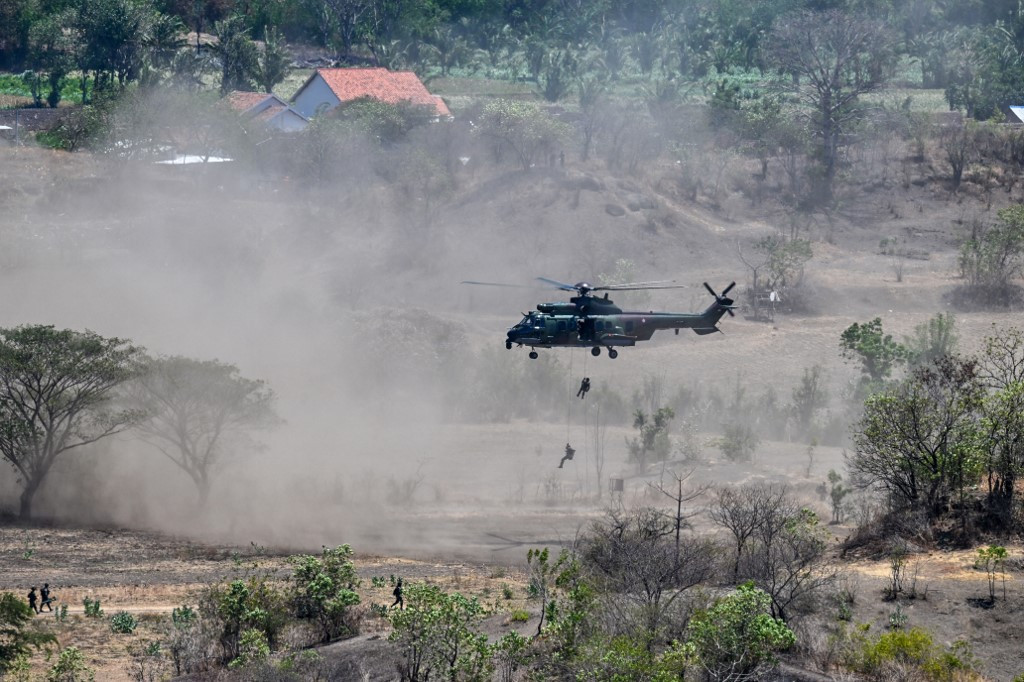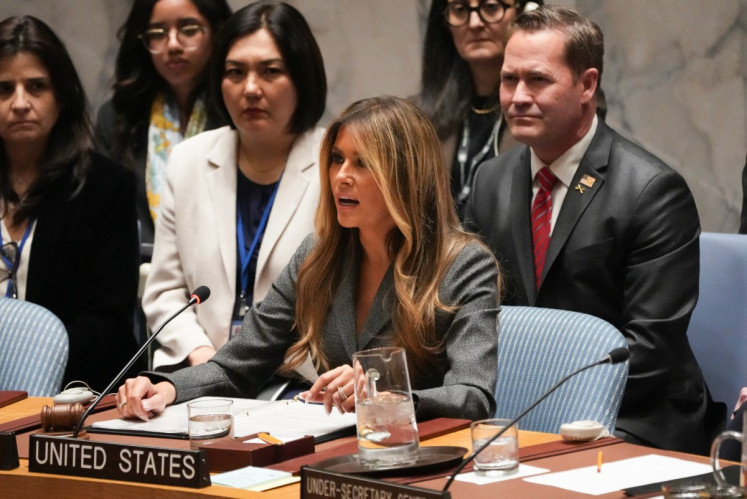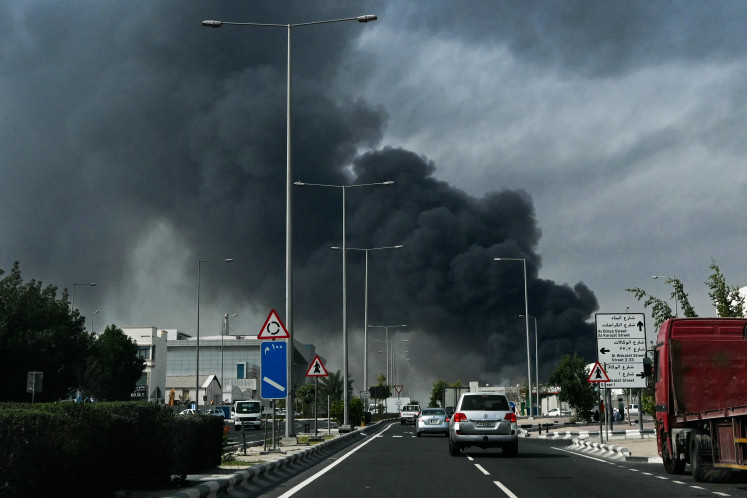Popular Reads
Top Results
Can't find what you're looking for?
View all search resultsPopular Reads
Top Results
Can't find what you're looking for?
View all search resultsIndonesia, US and allies launch joint military drills
The annual "Super Garuda Shield" drills will take place in the capital Jakarta and several locations on the western island of Sumatra and the Riau archipelago until September 4.
Change text size
Gift Premium Articles
to Anyone
I
ndonesia and the United States launched joint military drills on Monday that will last more than a week, joining allies from 11 countries in exercises aimed at ensuring stability in the Asia-Pacific region.
The annual "Super Garuda Shield" drills will take place in the capital Jakarta and several locations on the western island of Sumatra and the Riau archipelago until September 4.
More than 4,100 Indonesian and 1,300 American troops will take part, joined by participants from Australia, Japan, Singapore, France, New Zealand, Britain and other nations.
The US and some allies such as Australia have expressed growing concern about China's increasing assertiveness in the Pacific, but Washington has previously said such drills are not aimed at Beijing.
Samuel Paparo, commander of US Indo-Pacific Command, said this year's exercises were "the largest Super Garuda Shield ever", adding that they would help participating nations boost deterrence, without elaborating.
"It represents deterring anyone that would hope to change the facts on the ground using violence with the collective determination of all participants to uphold the principles of sovereignty," Paparo said at Monday's opening ceremony.
"We do this by getting better every day across all domains... so if the unforgiving hour comes when we need each other as partners, we pick up the phone and we begin operating from a basis of deep trust."
The programme includes staff exercises, cyber defence drills, and a live-fire event, the Indonesian Military (TNI) said.
Countries including India, Papua New Guinea and Timor Leste also sent observers for the exercise.
Indonesia maintains a neutral foreign policy and tries to keep good relations with Washington and Beijing, walking the diplomatic tightrope in the superpower rivalry.
Last week, German foreign minister Johann Wadephul said during a visit to Jakarta that China's assertiveness in the South China Sea and tensions in the Taiwan Strait pose threats to international security that also impact Europe.
"China's growing military assertiveness in the South China Sea not only threatens Asia's security, but also undermines the international rules-based order as a whole," Wadephul said in a speech at a foreign policy event, adding that essential trade routes were also at risk as a result.
On the Taiwan Strait, the minister said: "Any escalation would have serious consequences for global security and prosperity – and directly affect German and European interests, too."










